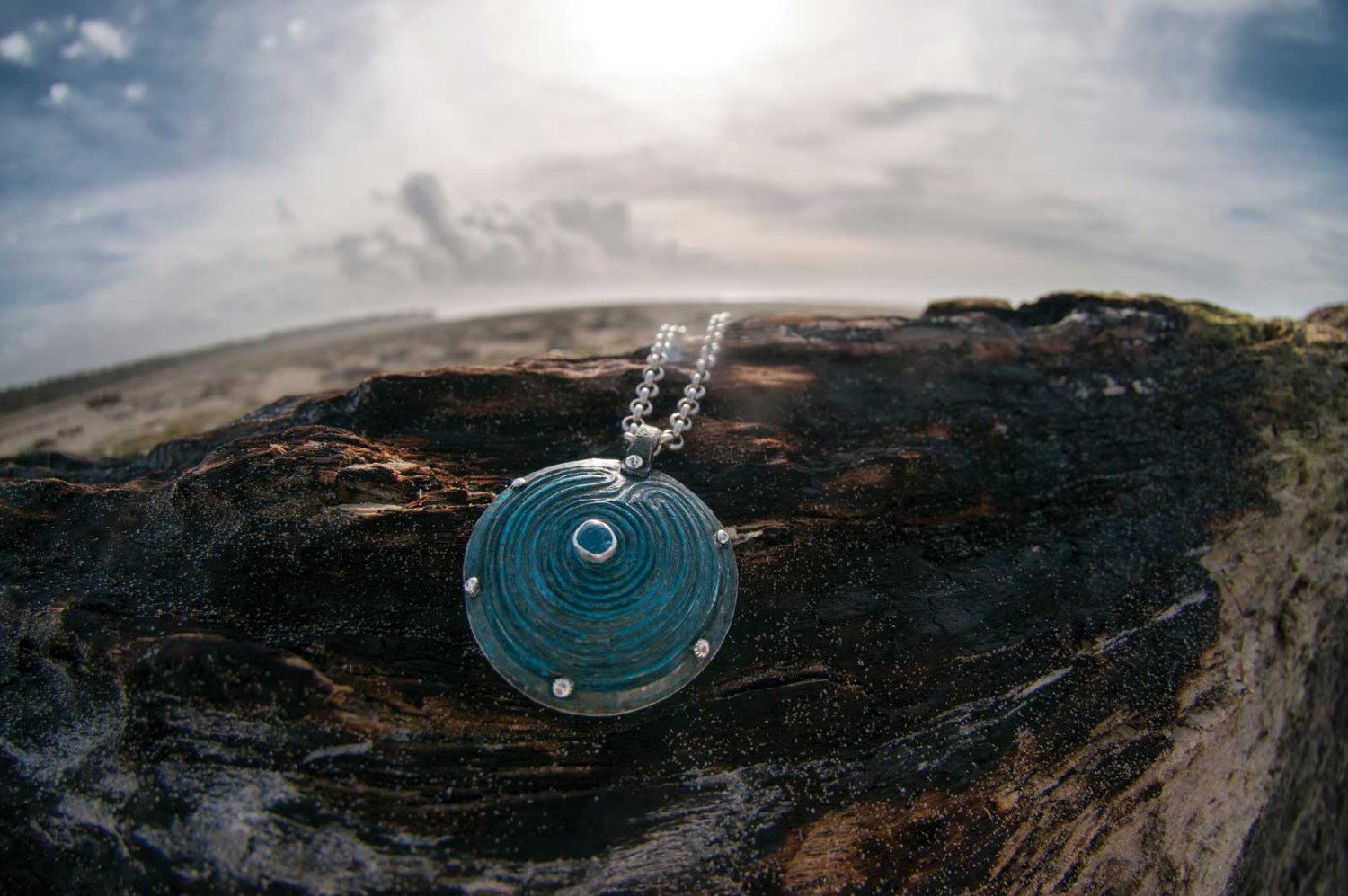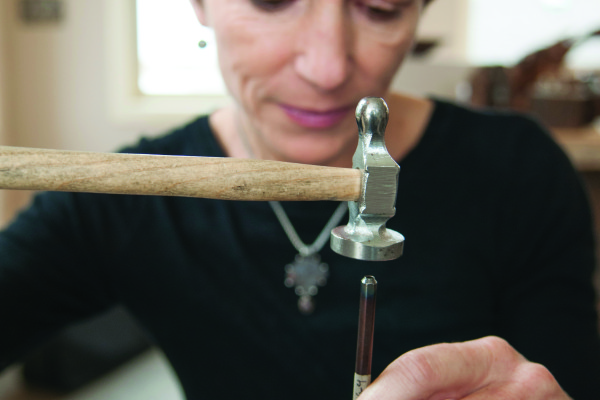 Judith Altruda’s studio lies on a corner of a road that traces the edge of the water. From her windows, she can see the raised sand of Empire Spit, the tip of the Long Beach peninsula, the expanse of Willapa Bay’s green-gray waters and the misty fingers of the low winter clouds. There is a starkness to the landscape but tons of layers and textures, with bird feathers, evergreen needles, brushy grasses and dense mosses.
Judith Altruda’s studio lies on a corner of a road that traces the edge of the water. From her windows, she can see the raised sand of Empire Spit, the tip of the Long Beach peninsula, the expanse of Willapa Bay’s green-gray waters and the misty fingers of the low winter clouds. There is a starkness to the landscape but tons of layers and textures, with bird feathers, evergreen needles, brushy grasses and dense mosses.
“I find this view really inspiring,” Altruda said. Everything about Tokeland, her chosen home, feeds her aesthetic: a mixture of lush and stark, where nature’s roughness is as appreciable as its bounty.
 It’s part of Altruda’s evolution, as a California girl who began her artistic career as a painter, obsessed with hidden history of glossy Barbie, to a jeweler who is sparing with shininess but long on coaxing depth and feeling from the materials with which she works.
It’s part of Altruda’s evolution, as a California girl who began her artistic career as a painter, obsessed with hidden history of glossy Barbie, to a jeweler who is sparing with shininess but long on coaxing depth and feeling from the materials with which she works.
Altruda started her career with Brent Bryan of Bryan and Son Jewelers after studying at Cornish College of the Arts in Seattle. She liked the process of making jewelry – how, unlike a painting, she could walk away from a piece she was working on and come back to it much later to add to it, or to change it.
In Tokeland, beauty and fierceness are two sides of the same coin. In Altruda’s studio, that is literally the case, as the jeweler works with ancient coins, setting them in necklaces and on bracelet cuffs.
Years ago she had ordered a bag of Roman coins that were in bad condition. Altruda expected she would melt them down and repurpose them in her work but once she saw them in real life, she found herself drawn to the colors, textures and designs on them, and started incorporating them into her pieces. Now she seeks the coins to give them a place of honor.
Her pieces can infuse the old coins with new relevance. Take a necklace with an ancient coin bearing the crab of Cancer and fish of Pisces, “There are a couple of fishermen who have their eye on that one,” Altruda said.
“They think the crab looks like a Dungeness.”
Altruda also works with sea glass, a material that she sources from Britain. During the Industrial Revolution (and many years after), glass factories along the English coast often dumped their waste near the ocean, where rocks and water wore away at the pieces, giving them a frosted, opaque look and softening their jagged edges.
Sea glass texture fits in with Altruda’s aesthetic but instead of treating it as a dreamy, pastel material she places the slivers amid etched metals. Sometimes she uses shibuichi, a Japanese alloy of silver and copper that takes a patina and was traditionally used on samurai armor. It’s another way for her to fuse beauty and strength, and to transfigure the martial or commercial into the ornamental. She also uses basalt and iron chunks she finds along the beach by her home for her pieces. Basalt, cooled volcanic lava that becomes a common black rock, is striking when set in gold, she said.
Altruda also sees the Northwest as a place of cultural fusion and in her art she mixes cultural influences as well as metals.
This summer Altruda went to Ireland to learn from a master metalsmith, Brian Clarke. She studied the ancient art of chasing: taking a piece of metal, setting it on a stand slathered thickly with gooey pitch, and using a hammer and punch to bang out designs. She had to learn to “think in reverse, which isn’t that easy,” she admitted.
At home, she is taking that Celtic art and applying it to metals with designs from the local tribe. She is collaborating with her friend Earl Davis, a carver and member of the Shoalwater Bay tribe, for future pieces.
The designs and the myths come from different places but they have the same elemental power for the human spirit.
“There’s a reason we’re still telling the same stories over and over again,” Altruda said. Instead, she is telling them in her own way, in metal and glass and stone.
to see more:
See Judith Altruda’s work on her website at
www.judithaltruda.com, where you can purchase items by linking to her Etsy site, follow her on Facebook, Pinterest, Twitter, or contact Altruda if you would like to make an appointment to visit her studio. Also see her during the North Cover Art Studio Tour April 18.
RiverSea Gallery in Astoria, Oregon at
1180 Commercial St.
Artemisia stores in Chicago and Geneva, Ill.